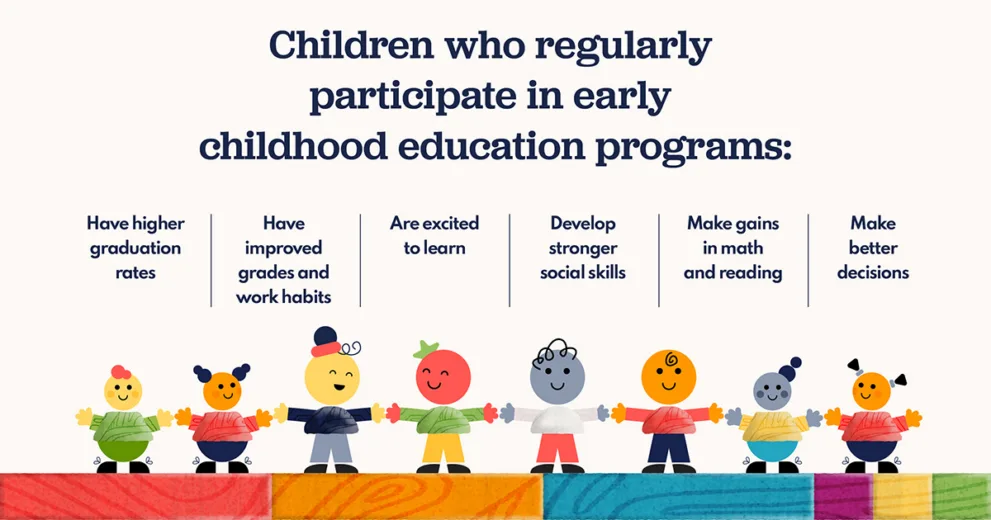Moncton – Affordable child care is not a luxury—it is a necessity. That is why the Government of Canada is working with provincial, territorial and Indigenous partners to implement a Canada-wide early learning and child care (ELCC) system that will bring fees for regulated child care across the country down to $10-a-day on average by March 2026.
Jenna Sudds, Minister of Families, Children and Social Development, Dominic LeBlanc, Minister of Public Safety, Democratic Institutions and Intergovernmental Affairs, and Bill Hogan, New Brunswick’s Minister of Education and Early Childhood Development, announced a three-year action plan to improve and expand early learning and child care services across the province. The Action Plan covers commitments made under the Canada–New Brunswick Canada-wide Early Learning and Child Care Agreement, the Canada-New Brunswick ELCC Agreement, and the Canada-New Brunswick ELCC Infrastructure Fund Amendment. The plan sets a road map for strengthening and expanding the child care sector in the province and improving access to high-quality, affordable, flexible, and inclusive child care for families.
Over the course of the three-year plan, New Brunswick’s Action Plan 2023–2024 to 2025–2026 outlines spending of more than $426 million in five areas:
Affordability
- More than $295 million towards the goal of achieving regulated child care fees of $10-a-day average by March 31, 2026. The Government of New Brunswick has already reduced child care fees by an average of 50% as of December 2022 saving families an average of $3,600 per year, per child.
Access
- More than $20 million towards the creation of 3,400 new regulated child care spots by March 2026. In New Brunswick, measures to support the creation of 3,400 new spots have been announced, including in francophone and rural communities.
Quality
- More than $128.5 million toward ongoing support for the early childhood educator (ECE) wage grid introduced in November 2022, and offering training to support educators obtaining their Level 1 – ECE Certificate.
Inclusion
- More than $30 million to develop and implement a comprehensive inclusion framework for both anglophone and francophone sectors; as well as continuing to support inclusion measures for diverse and vulnerable communities, including children with additional needs.
- Approximately $12.4 million through the Government of Canada’s Early Learning and Child Care Infrastructure Fund to increase the physical accessibility of ELCC spaces and support greater inclusion for underserved communities including: families in rural and remote communities, minority language communities, newcomer families, low-income families, extended hour service providers and Indigenous communities.
- With more than $2.7 million, the Government of Canada and New Brunswick are collaborating with Indigenous communities and organizations to identify areas of focus and establish a plan for ELCC services for Indigenous children that is supported by an Indigenous-led, strength-based coordination process.
Reporting and Administration
- Over $16 million to support the implementation and administration of the Canada–New Brunswick Canada-wide Early Learning and Child Care Agreement, including building targeted capacity and additional resources within the Government of New Brunswick to support the implementation of initiatives, and enhanced data collection and reporting.
Building a Canada-wide early learning and child care system that works for families in every region of the country is a key part of the Government of Canada’s plan to make life more affordable for families and give kids the best possible start in life, while supporting a strong workforce and growing the economy.
“We are at the halfway mark of our plan to make $10-a-day child care a reality for families in New Brunswick. While we have made significant progress, more work needs to be done. With this Action Plan, we have a clear path forward on how we will work together to create new child care spots to reduce waitlists, cut costs for families, and support the workforce.” – Jenna Sudds, Minister of Families, Children and Social Development








